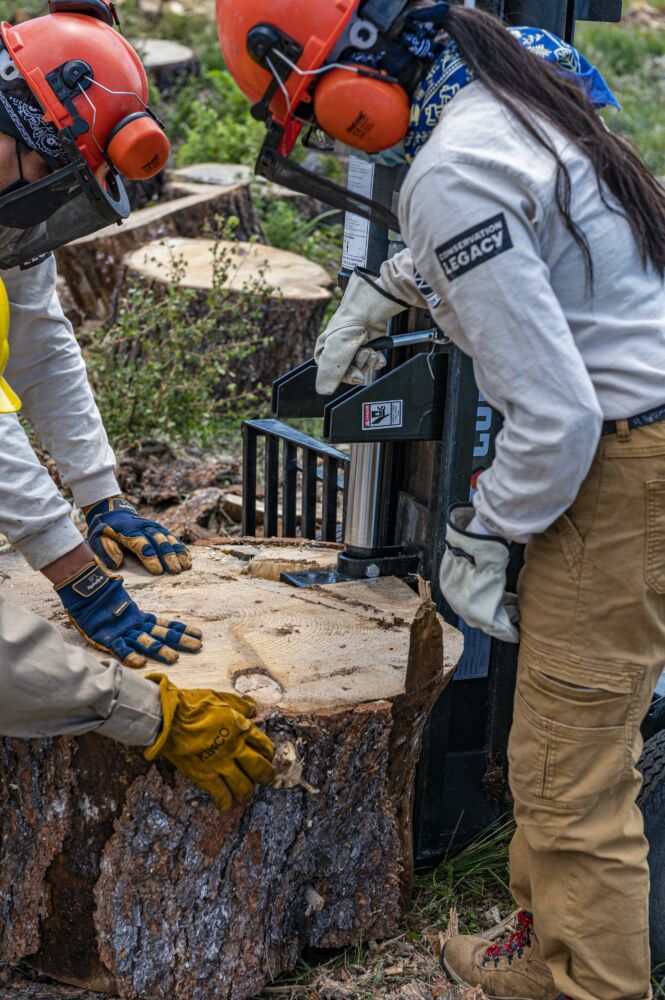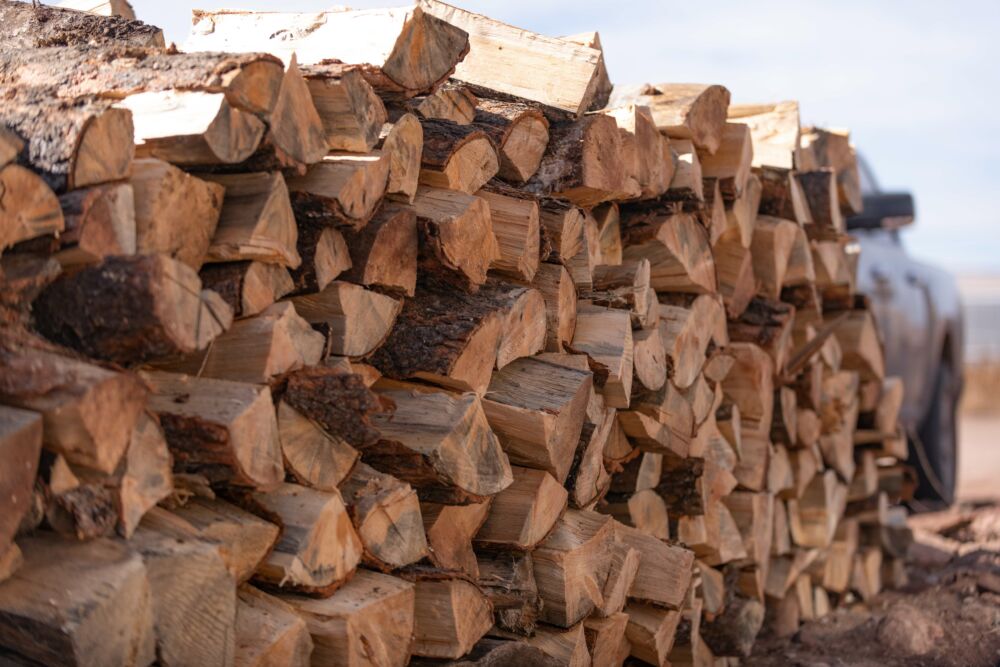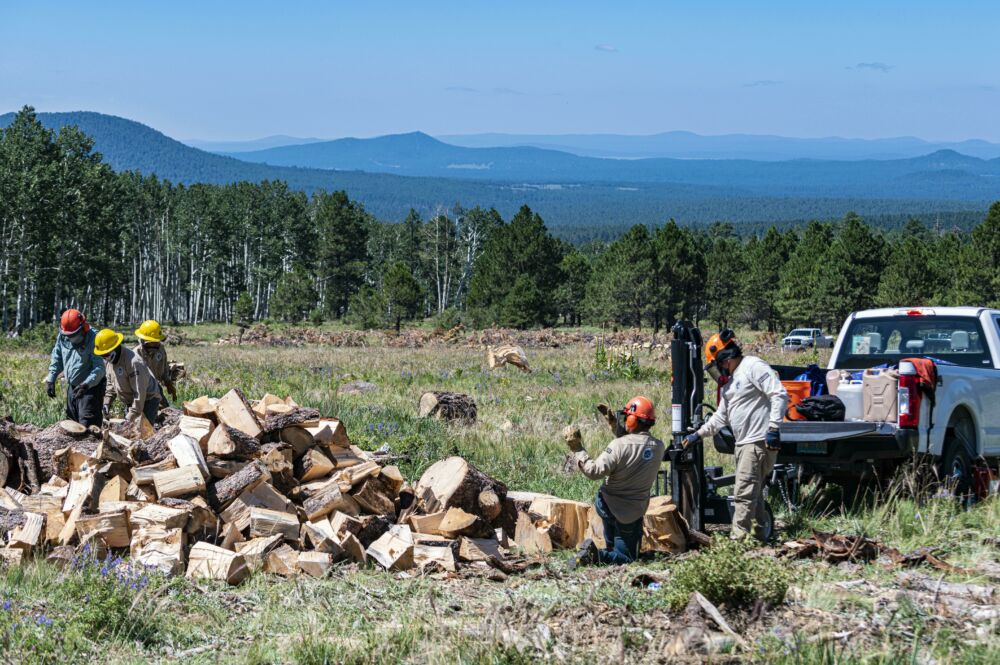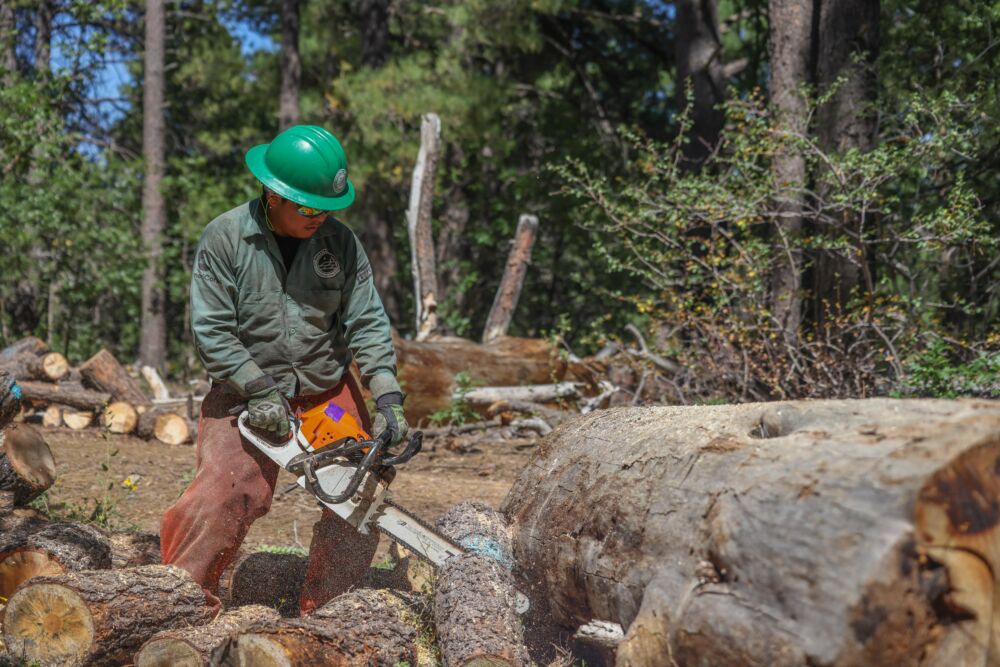All year, we share amazing stories about recreating on and restoring National Forests and Grasslands. Stay in the loop and sign up for Tree-Mail today!
Jen Magnuson Photography

Jen Magnuson Photography
Tribal communities are supported through the provision of firewood from timber, restoration of forests, and improvement of sustainable partner relationships for the needs of present and future generations.
Relationship building, coordination, and information exchange across a network of partners in northern Arizona facilitates the supply, transportation, and processing and distribution of firewood to tribal communities in need and promotes the sustainability of healthy forests.
Click here to learn more about NFF's Wood for Life partnership efforts across regions.
Interested in joining the Northern Arizona WFL partnership, or in need of fuelwood?
Red Feather Development Corps healthy home energy and safety improvements
Videos on chimney cleaning, stove changeouts, and stove safety
Safe Wood Burning Practices
Wood banks are programs that aim to help community members by supplying firewood at little to no cost to those in need that rely on firewood as a heating source. How to start a community wood bank.

Photo by Todd Middleton

Photo by Jen Magnuson Photography

Jen Magnuson Photography
Partners in Northern Arizona WFL include but are not limited to:
The Northern Arizona Wood For Life Partnership is a partnership project with the goal of providing much needed firewood to local tribal and vulnerable communities and to assist in forest restoration efforts by removing hazardous fuels. The partnership has come together to provide funds, labor, and transportation of wood to tribal communities who process and distribute it to those in need.
The primary partners right now consist of the Forest Service, the National Forest Foundation, the Nature Conservancy, the Navajo Nation - Cameron, Tuba City, Birdsprings, and Leupp Chapters, Hopi Tribe, and the Hopi Foundation. We are also working with the Ancestral Lands Conservation Corps, Red Feather Development Group, Joe Dirt Excavating, University of Arizona Tribal Cooperative Extension, Northern Arizona University Ecological Restoration Institute, and WL Gore.
Northern Arizona WFL is a program for tribal and vulnerable communities. Please contact Forest Service or partners listed in the contact us tab to inquire about community eligibility.
Funds for labor, transportation, and wood distribution come from various project partners including National Forest Foundation, U.S Forest Service, The Nature Conservancy, Conservation Legacy Ancestral Lands, the Hopi Tribe, Red Feather Develop Corps, and the Navajo Nation.
Navajo and Hopi communities have recently lost access to coal as a resource for heating and cooking. This includes many homes that lack electricity and running water. The COVID-19 pandemic has further added challenges to firewood gathering due to stay-at-home orders and limited access to transportation. Distributing firewood also assists the Forest Service by providing a venue for hazardous fuels to be removed from the forest. The Forest Service has several policy mechanisms that allow the transfer of wood to partners.
The wood is coming from a variety of Forest Service lands in the four corners region, with a focus on nearby forests to decrease the barrier of transportation. These areas have an abundance of firewood as a result of forest restoration efforts.
Some of the wood is removed right away as part of the original thinning contract or is sold through a separate contract. However, there is an abundance of wood on the market and uses are extremely limited. The firewood that is being distributed through the Northern Arizona WFL program consists mostly of low value small-diameter wood. Without a robust enough market, the main way to remove these hazardous fuels is to gather them into piles on site and burn them. Utilizing partnerships to transfer this wood assists forest restoration efforts and meets a critical need for local tribal and vulnerable communities.